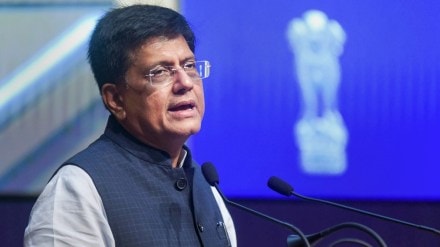India is willing to pay a higher price for products made domestically in its efforts to build resilient supply chains at home as frequent disruptions from overseas suppliers adds to vulnerabilities, commerce and industry minister Piyush Goyal said on Wednesday.
“We are willing to pay that extra buck to be able to have resilience in our supply chains. Of course it has helped us create jobs and production capacities within the country. Wherever we have found concentration of production or concentration of supply from any geography that has been the area we have looked at self-reliance,” the minister said.
He was participating in the Ministerial Round Table on Resilient, Sustainable and Inclusive Supply Chains and Trade Logistics organised by United Nations Conference on Trade and Development (UNCTAD) in Geneva.
“We realise we will have to rethink our supply chains. We have launched a massive programme called Aatmnirbhar Bharat. We are addressing each and every supply chain sectorally to see where our vulnerabilities are. Where we need to expand capacity even if it may not be adhering to Michael Porter’s theory of competitive advantage of nations,” he said.
There is an overconcentration of supply chains both at the source and at times on the demand side also and called for south-south cooperation in areas of current concerns like the critical minerals problem or problems of adequate supply of fertilizers that many nations in the world are confronted with, the minister said.
Critical minerals and fertilizers trade has been the most visible commodities where China has used its dominance to arm-twist the world and push its demands with various countries.
“To support building of resilient supply chains India is also expanding our Free Trade Agreements (FTAs), expanding trading relations with friendly countries. We placed trust and reliability at a bigger foothold than just costs,” he said.
In the FTAs with Chile, Peru and Australia the critical mineral trade will be a key component. The formal agreement will provide assurance of supplies of these commodities.
The minister also pointed to the unilateral environmental restrictions that certain countries and geographies are introducing that will impact the developing countries the most, without referring to the European Union’s carbon tax measures.
The EU will start collecting carbon tax through Carbon Border Adjustment Mechanism (CBAM) from January 1, 2026 that will make exports to the 27-member bloc more expensive.
“It is time for global south to speak in one voice on concerns that impact us all
“We believe global south-south cooperation converted into concrete action agenda can provide genuine long-lasting solutions in several area. Not only in areas of current concerns like the critical minerals problem or problems of adequate supply of fertilizers that many nations in the world are confronted with,” Goyal said.
